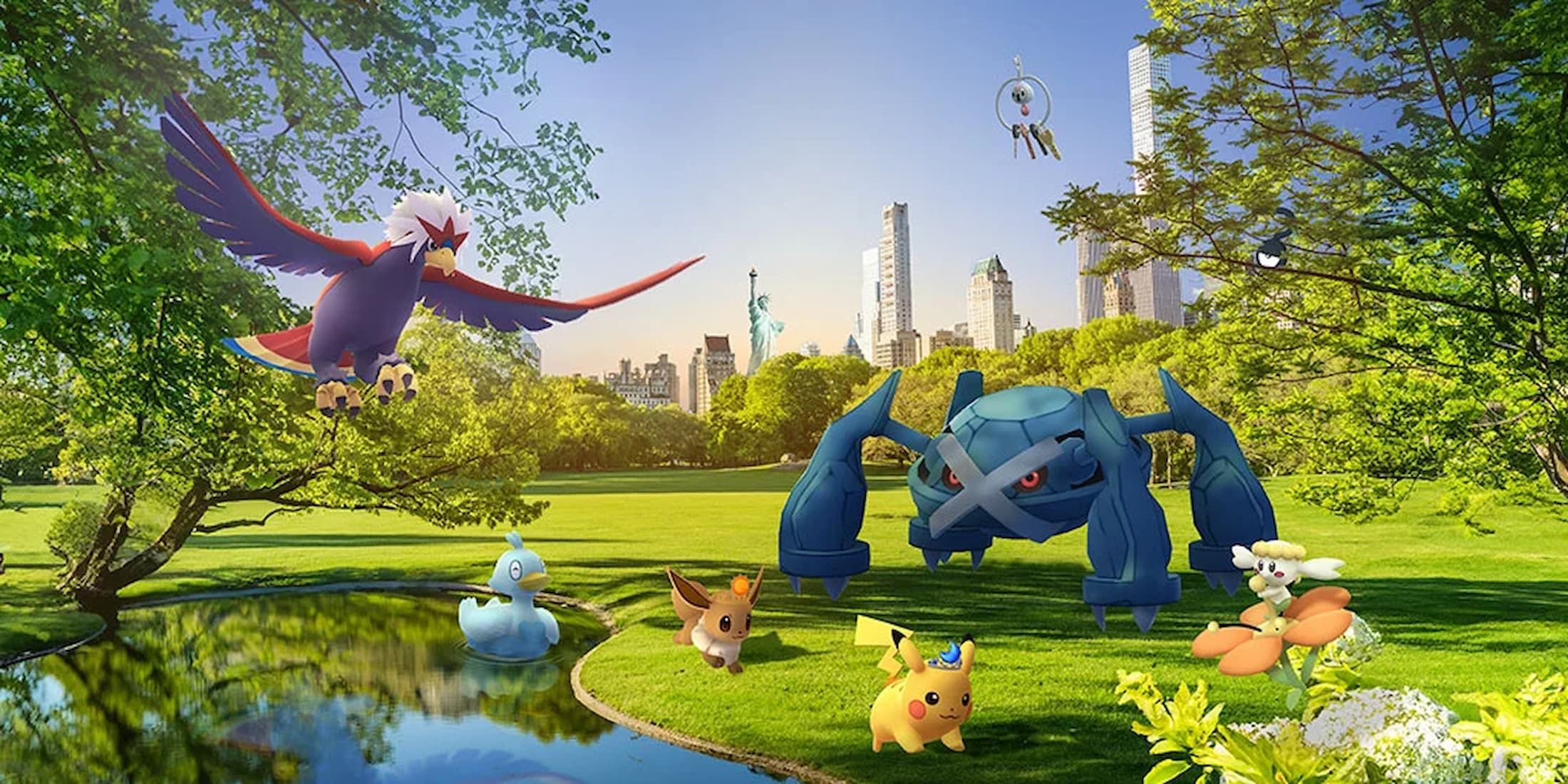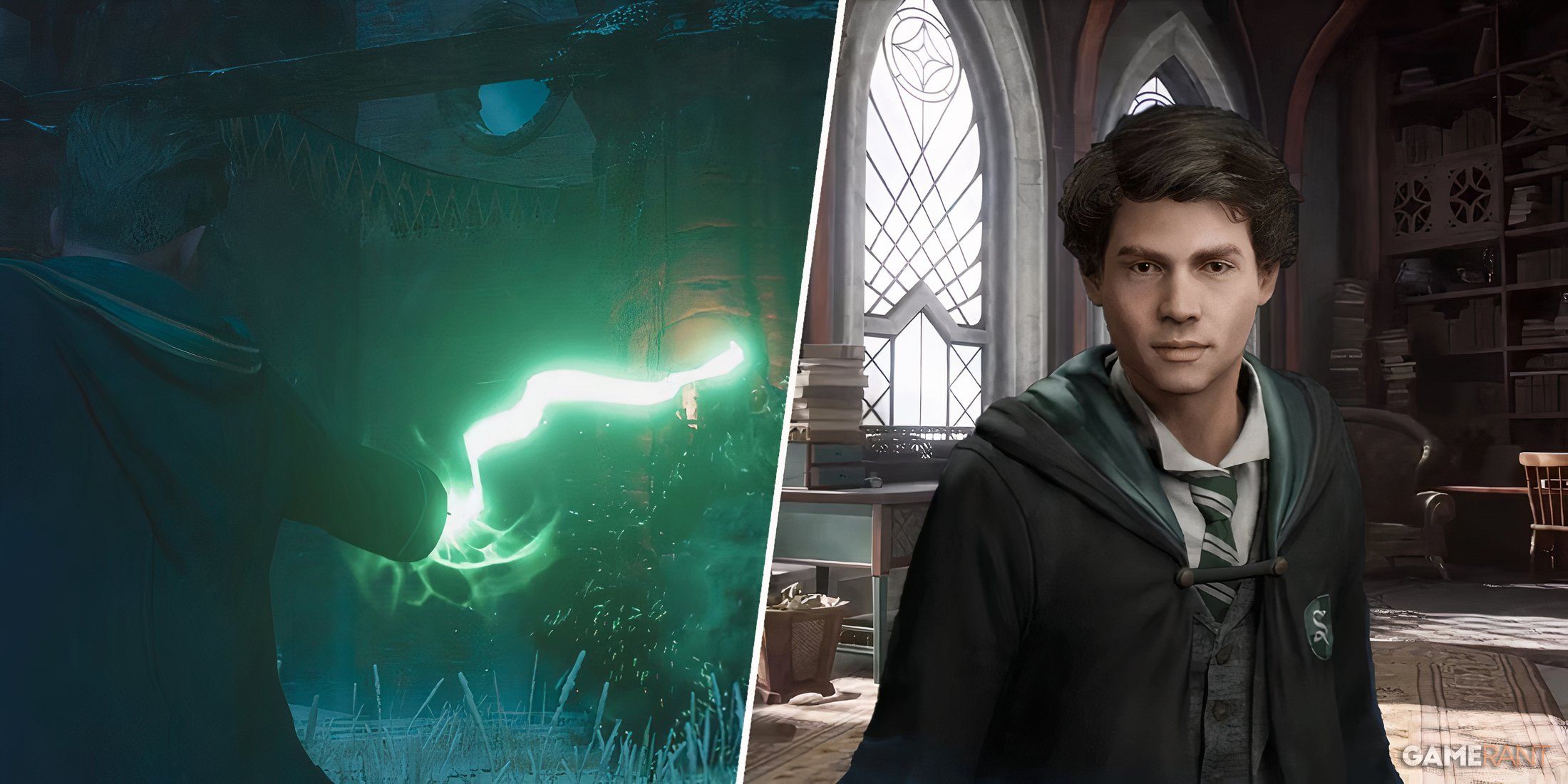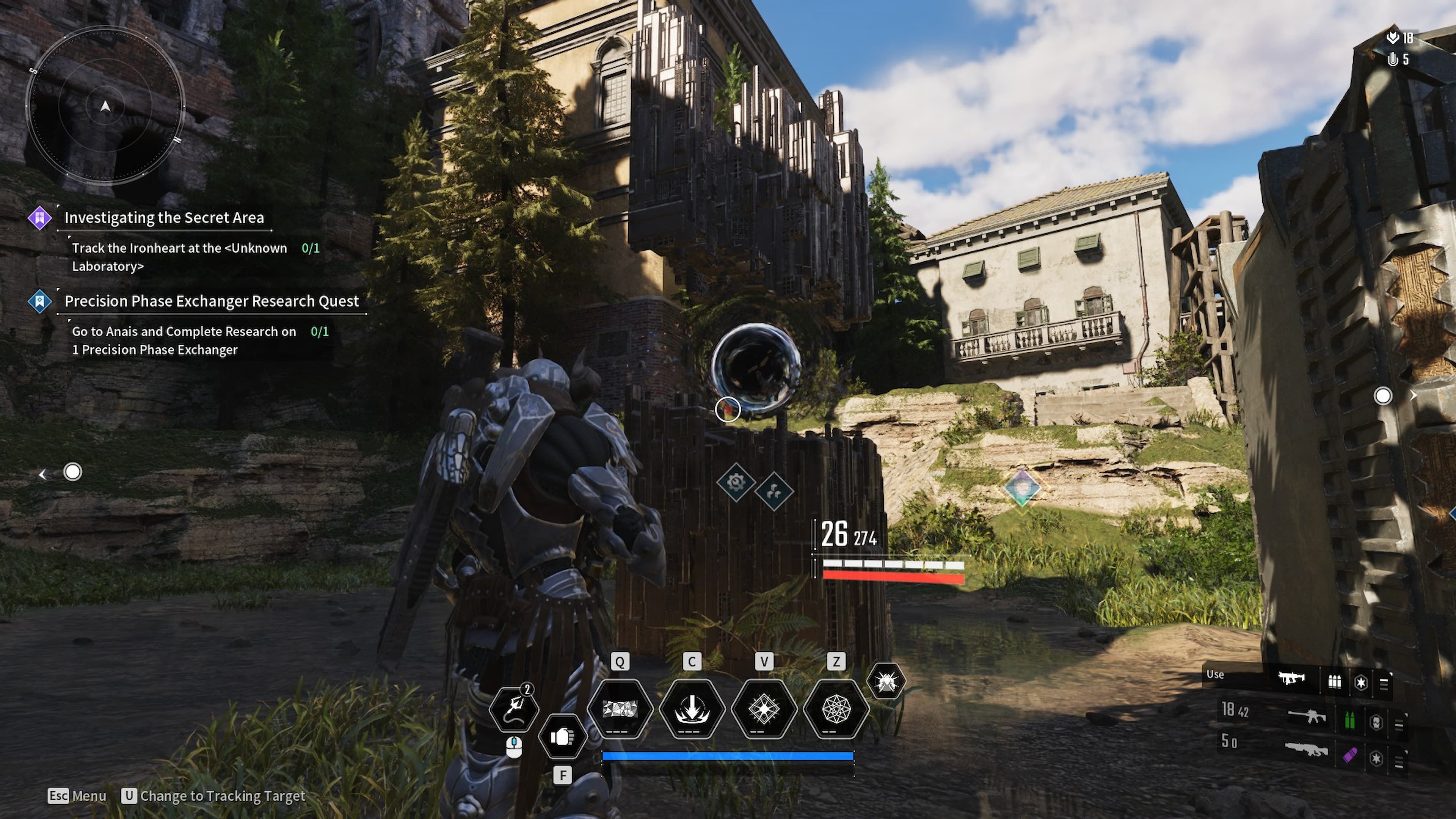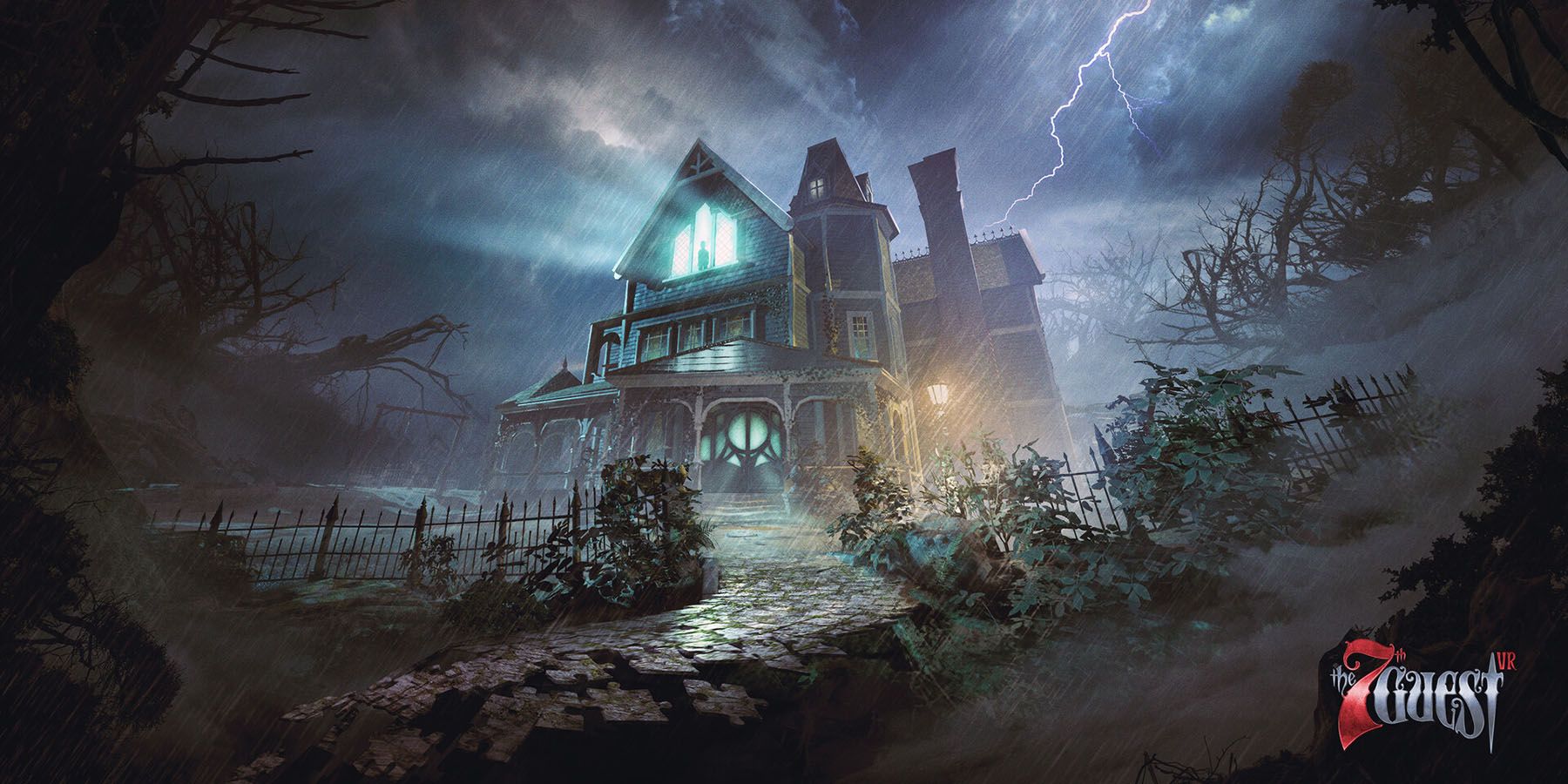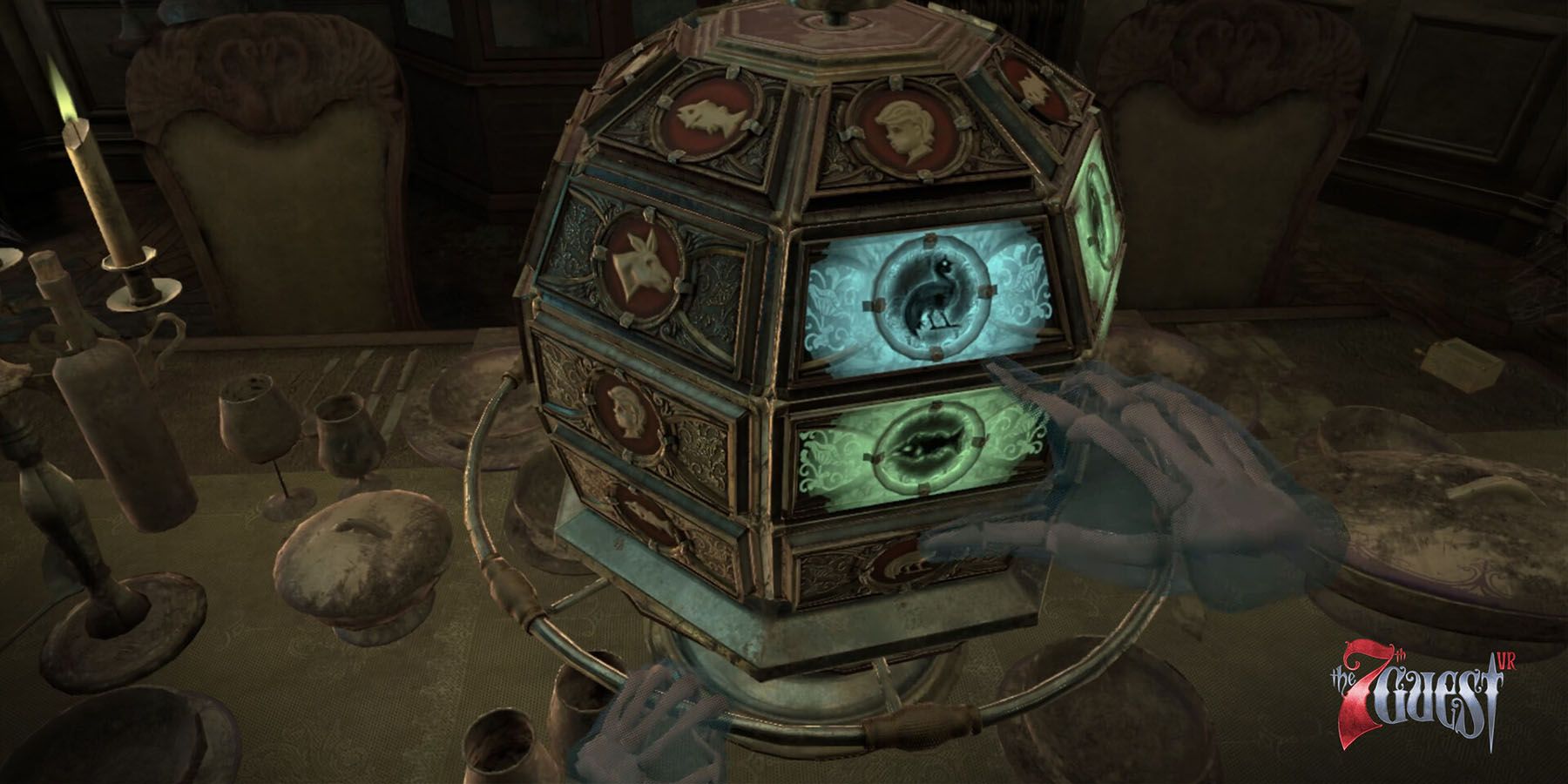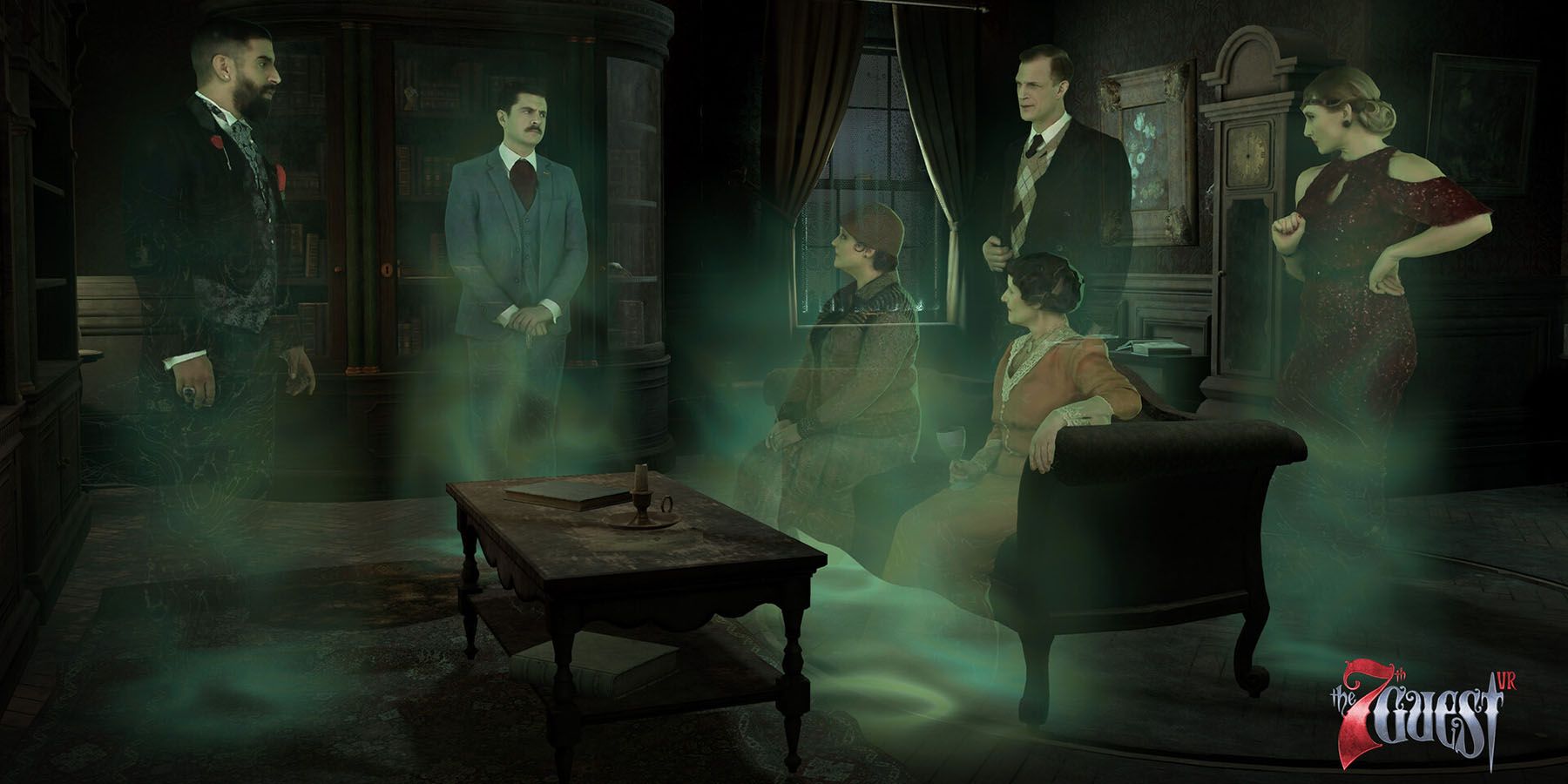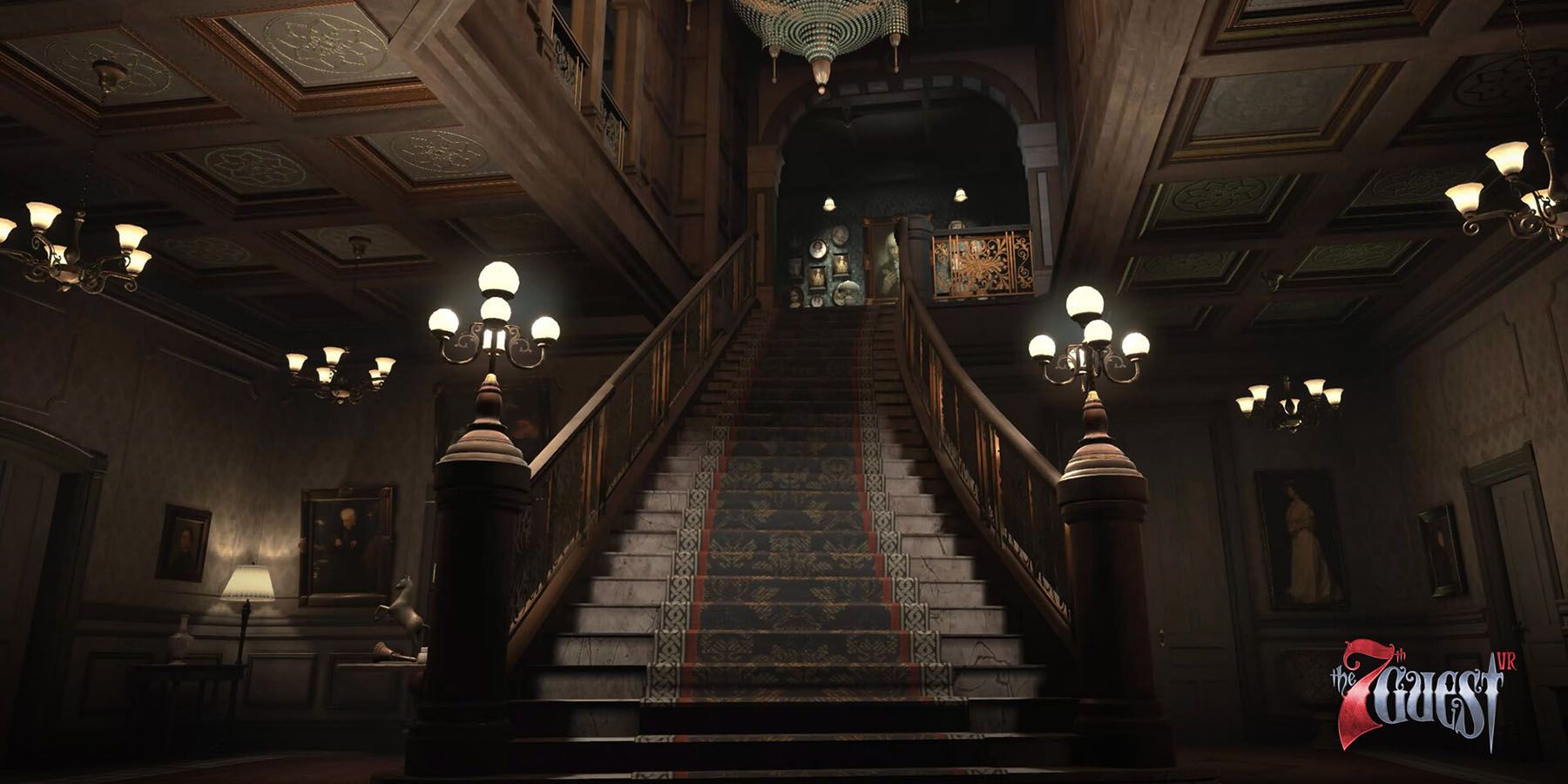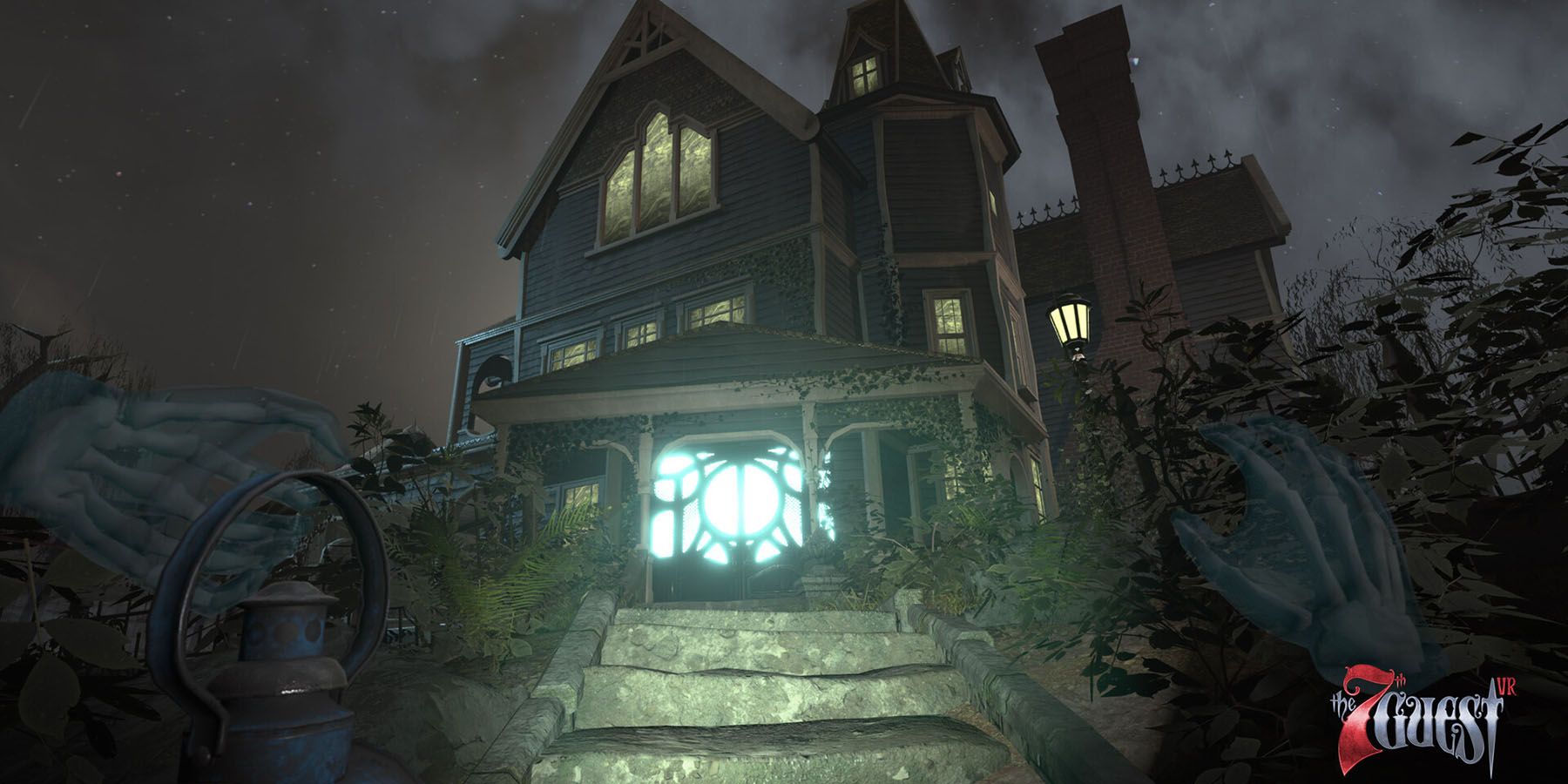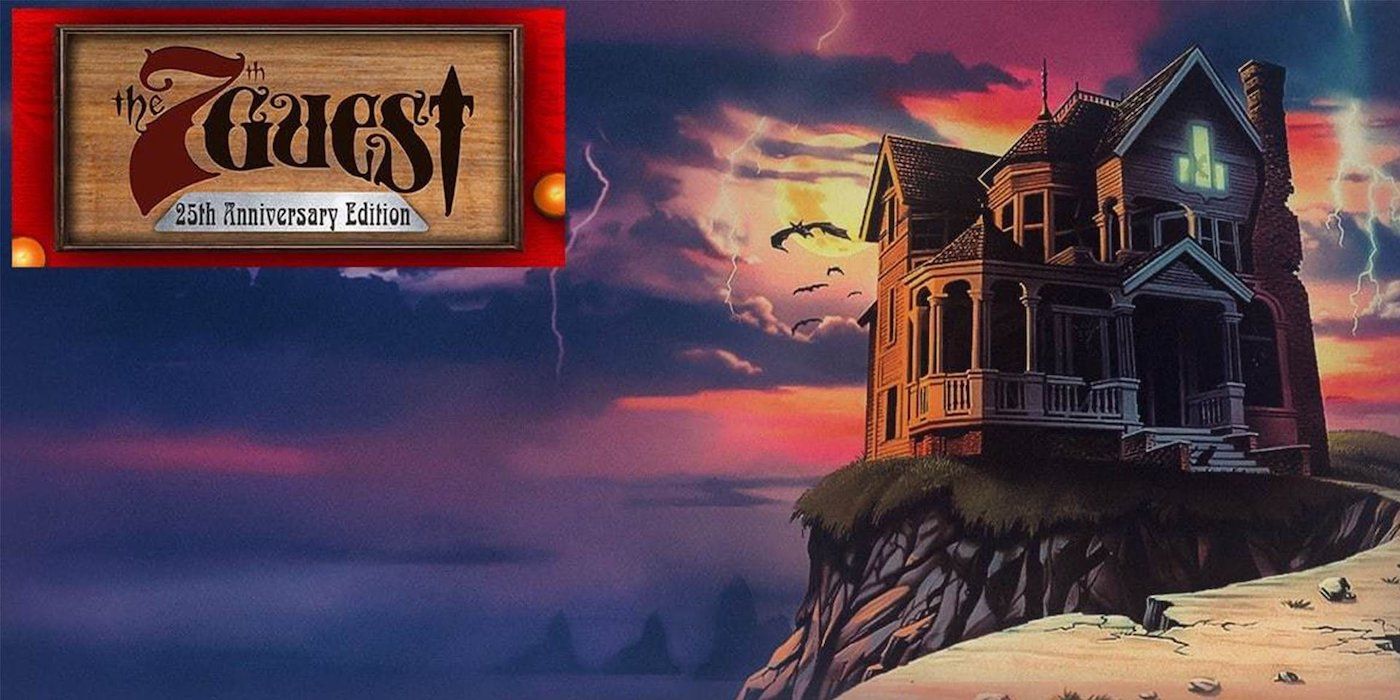The 7th Guest VR, a virtual reality remake of a 90s horror game, boasts cutting-edge tech, challenging puzzles, and more, all wrapped up in the ultimate mystery adventure. Of course, as one could venture to guess, remaking a 90s title is a challenge given the vast technological differences. For The 7th Guest VR, it's even more challenging because it's going from CD-ROM to VR.
To learn more about its development, Game ZXC recently spoke with Project Lead Paul van der Meer. We talked about honoring its legacy, moving the title forward, reworking the mansion, and much, much more. The following transcript has been edited for clarity and brevity.
Q: Could you tell us a bit about yourself and what you do?
A: Hello, I’m Paul van der Meer. I've been in the game industry for over a decade now, with most of my experience being in console gaming and VR. I ended up at Vertigo Games, and I've been enjoying myself a lot over the last couple of years. As the Project Lead, I oversee game design, puzzle design, and the overall vision of the project.
Q: What special considerations need to be made when developing a horror game for VR? What unique challenges or aspects have you found when developing 7th Guest?
A: Well, our first consideration is the player's perspective. Not everybody can deal with motion equally well. ‘Don’t move the camera unless the player does it themselves’ is kind of the first rule of VR. That’s also hard with horror because we can’t control the pacing or the player’s perspective in the same way as traditional games. If they decide to look in a different direction, they might completely miss the scary thing. So one of our biggest challenges is guiding the eye of the player, making sure important things are noticed but not so obvious as to be distracting, things like that. However, it also gives us a kind of freedom that you don’t get on a tv or monitor.
Q: The 7th Guest was originally released on CD-ROM in full motion video. With gaming technology having progressed by orders of magnitude over the last 30 years, how are you taking advantage of all the new tools and possibilities that VR provides?
A: VR graphics are up to a level now that is very immersive. We can do lots of amazing things that still look amazing in VR, even if it's like standalone VR, which has a much less powerful processor than a console or PC. Speaking of full motion video, we were looking for something new to try with this game, and we came across this perfect technology called volumetric video that felt like a perfect fit, almost like a sequel to FMV. It’s been 30 years, 2D planes don’t work in VR so you need to go 3D, and volumetric video allows for that and still allows you to capture those people, those actors, just like the original did. So that’s pretty cutting-edge stuff, and seeing that come together wasn’t a certainty at the start of the project.
Q: Volumetric Video - is that a VR-specific technology?
A: Not necessarily. It is something that is developed with a sort of AR/VR in mind. There are apps out there for your phone as well. I mean, it's at its core, you record a person in the center of a room, usually a green-screened room, a 360-degree green screen, with cameras all around that character. The scene is being recorded, and you get a mesh for every frame of what happened and a texture for every frame as well. When you play that back, you've got this 3D model that's really accurate and really sort of preserves that human performance in there, which you can then port to mobile or any other sort of app that you want. And then you have that animation, you can see it as a video really. There was a Blade Runner demo when the new Blade Runner film came out that used that technology briefly. I thought, ‘That's the ticket. We need to jump on that tech and take the story of 7th Guest to the next level in a way that hasn’t been done before.'
Q: The 7th Guest is a classic and influential title. How do you balance maintaining the game's legacy and original experience with the desire to innovate with the unique tools and opportunities that VR technology provides?
A: Right. As a hardcore fan of the original, that’s a balancing act for sure. There is this impulse to remake it exactly like it used to be, but I think that's also a pitfall. Especially when you're translating it to VR, there are certain things that you need to reassess for the platform. For a lot of the puzzles, for instance, that wouldn't be ideal. I mean, theoretically you could do it, but then you'd be missing out on all the things that make interaction in VR so interesting. Over these last 30 years, people have also come to expect different kinds of puzzles. People want a bit more of, say, an escape room quality to them. So we try to design those kinds of puzzles and dimensions as a whole, really in a way that wasn't possible before, but we think is in line with what the original would have been.
There were lots of technical restrictions at the time. They were working with the first 3D Studio Max software out there, so they were incredibly limited in what they could do and what they could pull off. I mean, it was jaw-dropping at the time, but that doesn't mean that that's your cut-off point. Really, that's your starting point for what this game can be. So it's the puzzles and it's the layout of the mansion, the look of the mansion. We all do it in the spirit of it, but there's a lot of stuff we need to fill in.
Q: Can you speak on the process of reimagining The 7th Guest in a fully 3D environment?
A:: Well, the mansion itself is pretty iconic. There are a couple of rooms that we kept the same, at least as much as we could. There isn't that much else you can add to certain types of rooms. For instance, a dining room has an elongated table in the middle, chairs around it, and that's your dining room. The opening shot, the view up the staircase, we wanted to nail that. We want you to instantly say “I remember this from the original.” For other types of rooms, we took a little more liberty to bring them up to a level of quality that you'd expect nowadays. We also changed the layout of the mansion some, so there's a little more going on. Like you can go around the corners.
Also, the original game only ever loaded one room at a time, so the dimensions of each room didn’t necessarily match each other when you went into the files and looked at them next to each other. The rooms were much bigger inside than what appeared possible from the corridor, for example. We have to show the entire mansion in a single space, so our first puzzle to solve as developers was how to make the mansion look realistic on the outside and still make it fit on the inside. Things might be a bit different, but we’re hoping players will resonate with the changes and recognize all the features we kept from the original.
Q: The 7th Guest has no combat system. What advantages and challenges does this design choice provide?
A: Well, it is a very specific type of genre. It's a puzzle game, so it would attract people who aren't looking for those kinds of combat games. It's a game with a deliberate, slower tempo. It allows you to take in the details of the room. We encourage exploration. There are things that you can find that would be beneficial to solving the puzzles. They may not be necessary, but they could help you out. So it's a whole different mindset going in. I don't think people will feel that combat would be lacking. Not to reveal too much, but there is a puzzle or two that involves a confrontation so there’s some spirit of that kind in the game.
Q: With the additional freedom or control that a player has in VR as opposed to a traditional gaming medium, what considerations do you make for controlling the pacing and keeping up the tension of the game?
A: That's a really good question because we offer multiple ways of moving. You have locomotion, which lets you move with a consistent speed through the mansion, which is easiest to control the pacing for. Certain audio or video events or animations can be pretty well-timed, but we need to offer teleportation for motion sickness accessibility, which is a whole other story. With people hopping from place to place, it’s much harder to pace or predict. People can hop up the stairs in two seconds, for instance. So we really need to have space for players to teleport without things slamming into each other, like audio lines overlapping. I think it works to the game’s benefit, though. In a game like The 7th Guest, you want to soak up that ambiance a bit, take your time, and look at individual details.
Q: Have you worked with the game's original creators in any capacity when developing this remake?
A: Yes! We've been talking to Rob Landeros, the IP holder and original designer of the game. It was an honor for me to talk to him because, like I said, I'm a hardcore fan of the game. I grew up with it, and it was just a lot of fun to meet one of the guys responsible for the original. He’s been very on board with the project, and he gave us a lot of freedom to approach it in the way that we thought it should be. 30 years, different medium, you know. You want to approach things in a new way, and he loved what we were doing. We keep him up to date and chat regularly about progress. He’s very excited to see how it all is coming to fruition, which is really encouraging for all of us on the team.
Q: Speaking of VR development in general, what is a unique challenge to VR game design that most people wouldn't think of? Or maybe something that surprised you.
A: Well player movement was a big one, which we touched on already. Teleportation is basically a superpower, especially in combat games like Arizona Sunshine and After the Fall. You have to make sure the player isn’t completely overpowered, which is an interesting challenge.
The other thing is just how, let’s say, physical or visceral VR can be. Jump scares for example can be terrifying, and things get intense really quickly. We had one arachnophobic tester who just threw down her controllers and "noped" out of the test when faced with a puzzle with spiders. She went from completely zen to really freaked out in a snap. There’s that intense sense of reality, but also the physical exertion aspect. You are often physically crouching, stretching, or reaching with your arms. It’s part of the fun, sure, but it can also be intense. We have to make sure those experiences don’t last so long that they exhaust the players.
You also have to take into account body shapes or individual height. If you’re interacting with something one meter tall and you have someone who’s two meters tall, can they interact with it properly? Same thing for someone who is really short. If there’s something essential but they can’t reach it, that’s a real problem, and it’s not present in the traditional console or PC experience.
Game ZXC: Vertigo Games has earned a number of awards and created many successful and influential titles. To what do you attribute your studio's success?
A: There are so many talented people here who just want to make something really, really good. The willingness to iron out every gritty detail, like object interaction, reloading weapons, individual animations, and how they all interact. We always try to ask ourselves why would you play this in VR? If the experience can translate to a flat screen, then we didn’t do our job right. And there are a lot of people here willing to go that extra mile, do the difficult thing, to serve the player experience, and make everything feel as good as it can be. We have a bit of a cowboy mentality, which I think is very important in doing things that haven’t been done before.
Q: What do you mean by ‘cowboy mentality’?
A: The mentality of just trying something that you’re not sure will work, and the willingness to potentially spend resources that won’t give direct returns in the pursuit of new and exciting ways to play. Game design is an iterative process, and you don’t want to be too rigid and risk-averse because that’s how you grow and push what’s possible, especially in a young field like virtual reality. Like with the volumetric video, it wasn’t the obvious thing to do for 7th Guest, and we weren’t sure it would work. We thought it was a perfect fit, but there were questions like, how big is it? How expensive is it? Will it work on this? Will it work on that? The safe bet would be to say no, we’re not going to do that. But to our CEO’s credit, he gave us the go-ahead to try it out, and here we are.
Q: Gaming technology is constantly progressing, and VR is often considered on the cutting edge. What new tech on the horizon are you most excited to see?
A: What I like about the industry, in general, is that progress is going so incredibly fast, and what seems like an issue now can be completely obsolete in a year. Your headset can have a much more powerful chip and weigh half as much compared to two years ago and cost a fraction. It’s such a young industry, and we’re making leaps forward like all sorts of companies, not just vertical but all over the place, you know? Like Apple just revealed their headset, who knows where that will take the field? There are new developments all the time like that. Things like eye tracking and hand tracking were impossible years ago, going from ‘why bother thinking about it’ to being a core tool in designing a game. I can’t speak to what the field will be like in the future, but I’m just so excited to be a part of it. It’s like getting new toys every month.
Q: In addition to VR development, Vertigo is also a publishing business. What do you look for when choosing VR games to fund and advertise?
A: I'm not on the publishing team, but I do have experience with this. I can say sometimes it’s just simple. If it sort of screams quality to you, if it’s like ‘oh man, this is really good, this is so much fun,’ then I’m sure we’d be interested. Sometimes it’s a build or even a concept that just seems really solid and unique. It goes back to the company culture, our approach is always what’s exciting, new, and serves the player experience the best. If we get excited about something, that’s the best indicator that players will get excited too. The more people get excited about it, the better the game is going to do, so there’s a commercial aspect to it as well.
Q: Is there anything else you’d like to emphasize or shout out?
A: I’m really just hoping that we do the original game justice. It’s not easy to remake something and reinvent it at the same time. But we bring a lot of interesting things to the table, and we stay true to the original spirit of the game as much as possible. I think it will be a homecoming experience for the fans and a brand-new experience for people who have never even heard of the original. For those people, they need no prior knowledge, they can just jump in and enjoy. In the end that’s what we’re all about, making sure people enjoy what we do.
[END]
The 7th Guest VR is in development for PC (Steam), Quest 2, and Quest 3.

